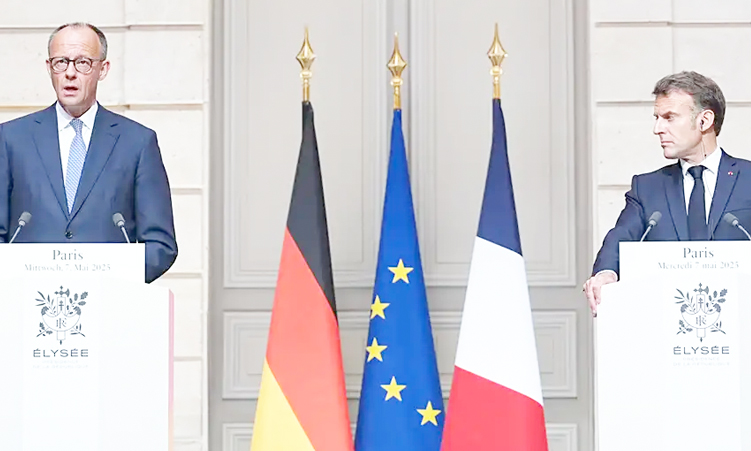BRUSSELS – Europe’s voters trust conservatives more than the left to handle the most severe financial and economic crisis since World War Two.
That was the key message of European Parliament elections that produced strong results for incumbent conservatives in Germany, France, Italy and Poland, but heavy defeats for governing socialists in Britain, Spain and Hungary.
The vote may ease political pressure for big government spending programmes to revive the economy, but it is unlikely to slow the drive for tighter financial regulation, which the next European Union legislature is set to make a key cause.
The pan-European poll should help low-key conservative Jose Manuel Barroso secure a second five-year term at the head of the executive European Commission with a mandate to extend supervision to all financial markets and institutions.
The strong showing for green parties means legislation to fight climate change and promoting clean energy will remain high on the new assembly’s agenda.
In Germany, which holds Europe’s most important national election this year on September 27, Chancellor Angela Merkel’s Christian Democrats emerged with a good chance of ditching their Social Democratic coalition partners and forming a centre-right coalition with the liberal Free Democrats instead.
The mainstream left’s retreat across the continent, except for Greece and Slovakia, was one of the big stories of the poll.
Socialist floor leader Martin Schultz called it ‘a very sad evening for social democracy in Europe’. Environmentalist greens were the main beneficiaries in France and Germany. But in many countries, working class voters stayed home or switched to the extreme right, the far left or anti-EU nationalists.
In Britain, Prime Minister Gordon Brown’s Labour Party was beaten into a humiliating third place in the popular vote by the Euro-sceptic UK Independence Party.
In Ireland, the chances of voters ratifying the EU’s Lisbon reform treaty in a second referendum later this year seemed to improve with the failure of the man who financed and led last year’s ‘No’ campaign to win a European Parliament seat.
But a big swing away from Prime Minister Brian Cowen’s Fianna Fail party following the collapse of a housing bubble and banking scandals means it will be a weak and unpopular government that puts the treaty to a fresh vote.
The overall turnout of 43 per cent was a record low, with apathy probably amplified by the crisis, although only slightly down on the 45,5 per cent in 2004.
It shows voters find it hard to identify with the parliament and few see the EU as offering a solution to their economic woes.
The conservative trend may seem paradoxical, since opinion polls show voters want a stronger role for the state in reviving the economy and regulating finance. But conservatives such as Merkel and French President Nicolas Sarkozy have succeeded in occupying that territory more credibly than the left. – Nampa-Reuters
– Paul Taylor is a Reuters columnist. The opinions expressed are his own.
Stay informed with The Namibian – your source for credible journalism. Get in-depth reporting and opinions for
only N$85 a month. Invest in journalism, invest in democracy –
Subscribe Now!










